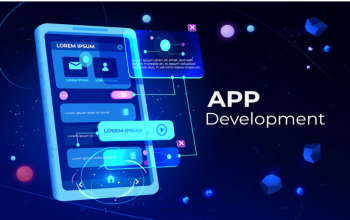If you are a mobile app developer or have developed an app for a client then, you might be familiar with some of the challenges associated with mobile app development. From tight deadlines to developing for different screen sizes, resolutions and platforms, app developers have their work cut out. Then there are other concerns regarding the ever-changing client requirements, and it makes the already difficult task even more daunting.
Thanks to app development tools, frameworks, libraries and templates, app developers won’t have to create everything from scratch. React Native is the best example in this regard. React Native is a mobile application framework that offers numerous benefits which will turbocharge your app development process by improving the productivity of your mobile app developers.
In this article, you will learn about how react native can accelerate your mobile app development process by enhancing the productivity of your mobile app developers. Here are seven reasons why professional mobile app development company use React Native.
1.Small Learning Curve
Most developers are familiar with JavaScript and React Native is built on top of JavaScript. This means that if you know JavaScript, mastering React Native won’t be a big problem for you. Additionally, React Native has a declarative style which makes it easy for developers to create a mobile as they don’t have to dip their toes in details of control flow or define what the app should do with logic. This small learning curve also helps new app developers who have recently joined your team to pick up from where you left off.
2.Shorter Development Cycles
Another advantage of using a cross platform app development framework like React Native is that it speeds up the app development process. The reason is that you don’t have to write all the code from scratch for a new platform. For instance, if you are creating a mobile app for android and you have already developed an app for iOS, React Native let you reuse a majority of code and make a few tweaks. This minimizes the time spent on developing an app for different platforms. With React Native, you can create an app for one platform and reuse code to create an app for another platform. To manage your time more efficiently, you can use an app like PomoDone.
3.Code Reusability
As mentioned above, code reusability is one of the hallmark features of React Native. By reusing the code, app developers can drastically reduce the time required to create an app and speed up the process of development. This means that you don’t have to build the same functionality in your app for different platforms because you can reuse the code and save your time. All you have to do is to make sure that the functionality is available for other platforms and app packages so it can easily be reused. React Native endorses “Write once and reuse everywhere” approach, which is great for mobile app developers.
4.Ready to Use Components
Who likes to code from scratch when you have ready made components available? No one, right. React Native has a huge library of ready to use components along with third party plugins and libraries to power your app development. This means that you don’t have to develop different functions by writing code. All you must do is to pick up React Native’s ready to use components and you are good to go. App developers can also incorporate native functionality into their apps easily with Native modules. This native module also enhances your app performance which allows you to deliver a much better user experience.
5.Making Changes is a Breeze
Let’s say your clients ask to add a new feature into your mobile app and you will have to make changes in the code for this. This can waste a lot of your time as developers have to compile the code multiple times to view the output. You can easily overcome this issue with React Native. It comes with a handy feature known as Hot Reloading. This feature helps developers to see the output as soon as they make changes to the code. App developers can see how their app looks after every line of code. You don’t have to compile the code and update in new files on the server.
6.Quick Update Approval Process
In today’s competitive app market, you will have to constantly introduce new features to keep your app users engaged. With so many options at their disposal, they won't wait long to switch to another app especially if your app doesn't offer interesting new features. Unfortunately, adding new features to your app and getting app store approvals for those new features requires a lot of time and effort. React Native Over the Air features eliminate this problem by taking the hassle out of the process of getting app store approvals for new features and app updates. Mobile app developers can easily push new updates to user devices via push notifications.
7.Testing Made Easy
How many times have you seen the dreaded message, “The app has crashed”? If the answer is frequently then, the app you are using is buggy. As an app developer, it is your responsibility to fix all the bugs and deliver a smooth user experience to mobile app users. That is where mobile app testing comes into play. Pass your mobile app through rigorous testing and iron out all the bugs before publishing your app on app stores.
You don’t want to make an app available to the public which is plagued by crashes and bugs. Thankfully, React Native offers a slew of testing tools, which help mobile app developers in writing bug free code. There is also a feature for type checking called PropTypes. You can also use third party tools and pass your app through unit testing, regression testing and end to end testing.
Do you use react native? If you do, how does it impact your mobile app development process? Let us know in the comments section below.





























